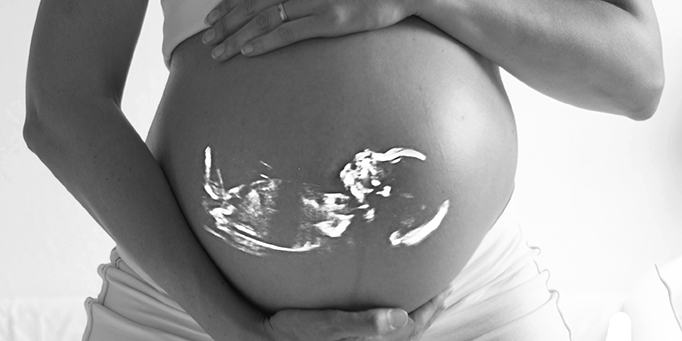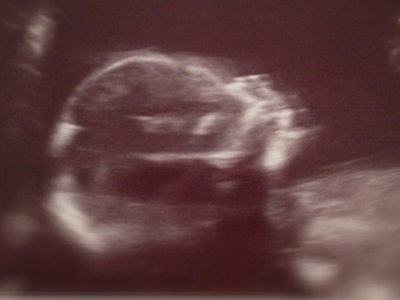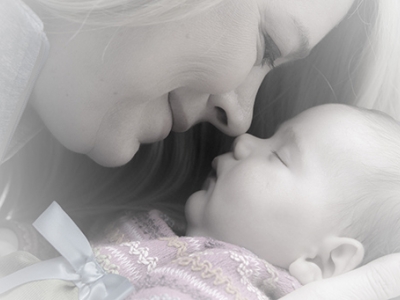
What to do if your teen daughter is pregnant
Sometimes, the prospect of new life is very complicated.
I’m going out on a limb here and suggesting that the most stomach-churning, horror-inducing words that parents could hear propelled from the mouth of their beloved teenage daughter are, “I’m pregnant!”
Internalised reactions will vary from an urge to dissolve into a soul-searching, sobbing mess of “Where did we go wrong?”, to the desire to find the scum who knocked up your princess and give him what’s coming.
For all your well-researched methods of educating your children on the birds and the bees, you know as well as I do that they live in a different world to the one we grew up in. Theirs is a highly sexualised culture where more than 90 per cent of boys, and more than 60 per cent of girls, have seen online porn. In fact, pornography is the most prominent sexual educator for many young people.
While the Australian teen pregnancy rate has dropped dramatically from 56 births per 1000 women in 1971 to 13 per 1000 women today, experts are divided as to the reasons why. Some say that teens have embraced contraceptive devices, like the hormone-releasing IUD Mirena and the Implanon rod. Others point to the relaxing of abortion laws – and the commonly quoted statistic that one in three women will have an abortion in their lifetime certainly supports this.
From this tangle of reality, your daughter has dropped the declaration in your lap and is watching you, wide-eyed, her shoulders squared in shame, defiance, ambivalence or all of the above.
What do you say? What do you do?
When the emotions subside, I hope you might consider these five points in framing your response.
1. Love her.
You guys have something special. Do not for a moment lose grasp of the fact that she came to you with this earth-shattering piece of information. The medical fraternity is adept at helping teens hide their ‘mistakes’, arranging for a hassle-free abortion at the nearest clinic. You can pretty much guarantee that, if she’s already been to see a GP, she’s been offered a pregnancy termination.
One of the points child psychologist Steve Biddulph makes in his Raising Girls book and talks is to always maintain open avenues of communication with children. Establishing this in the early days, when they just want to tell you about the squabble in the playground, sets you up for the big things, like this, should they happen. If she’s standing there, telling you, you’ve done good.
Hug her.
Cry with her.
Ask her for the full story.
Listen to her.
2. Don’t judge her.
This is what she’s most likely expecting; it’s why she hesitated at the beginning. Pregnancy is an unknown landscape to any woman, let alone one in her teens. She is afraid of the impact this will have on her future – her relationships, schooling, career prospects and freedoms. She’s freaking out!
Did you know that 70 per cent of women who had an abortion would have kept their baby if one significant person in their life stepped up to support them?
3. Don’t be naive.
As you see your beautiful daughter struggling to come to terms with her pregnancy, you might start thinking of her options. She’s not far along, you reason. I need to think of what’s best for her, the train of thought goes. And before long you’re wondering if a neat disposal of this pregnancy wouldn’t be best for all parties involved.
Well, here’s a few figures you won’t read in mainstream media – namely, because the truths aren’t good for business, if you get the gist. They are from a meta analysis of 22 international studies on the effects of abortion, by Dr Priscilla Coleman (British Journal of Psychiatry, 2011):
Women who had undergone abortion experienced an 81 per cent increased risk of mental health problems.
Nearly 10 per cent of all mental health problems in women were shown to be directly attributable to abortion.
Abortion is linked with a 34 per cent greater chance of anxiety disorders and 37 per cent higher possibility of depression.
Women who have had an abortion are twice as susceptible to alcohol abuse, have a three times greater risk of cannabis use and a 155 per cent greater risk of trying to take their own life.
Sobering, huh? You don’t want any of that for your daughter.
4. Be practical.
Words of support are hollow when they aren’t followed by action. Now, more than ever, your daughter needs you. Here’s your chance to be practical.
Be there for her.
Offer to attend every appointment she has through the pregnancy if the dad’s not around – or even if he is.
Help her access support services, to find a great GP and decide her preferred antenatal care.
Arm her with information – What to Expect When You’re Expecting (perhaps she’ll prefer the movie version), her baby size according to fruit and vegies, through to your own and other women’s experiences of pregnancy, labour and motherhood.
Connect her with great info tools like www.notbornyet.com and www.bravefoundation.org.au where she can read the stories of other girls just like her.
And if she is despairing about becoming a mother so young, be realistic. Adoption is a loving option – help her to see that there is no shame in wanting the best for your child.
Basically, be her wingman. Champion her in this journey. With you beside her, her fear will slowly dissipate.
5. Turn shock to joy.
No matter the circumstances, new life is something to be celebrated. Get excited about what lies ahead. Allowing this freedom to dream and envision a new reality for all of you will be the most loving step you take. It will not only set her free, but you too. You’re going to be a grandparent, after all, so how about that baby shower!
Claire writes for Emily’s Voice, a campaign helping Australians everywhere fall in love with the unborn and their mothers. Jump onto the Emily’s Voice website to find out how you can be part of this important vision. The Emily’s Voice sister website Not Born Yet provides information for women facing an unplanned pregnancy.
For more articles from Growing Faith, subscribe to our monthly e-newsletter.
To hear about the latest books and resources from Youthworks Media, subscribe here.







